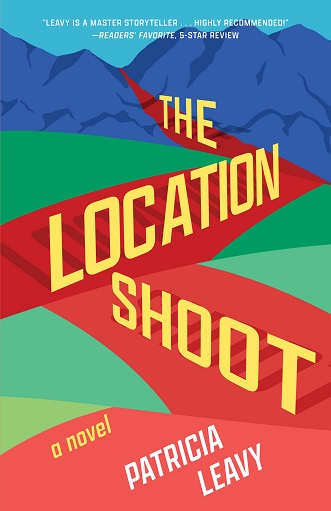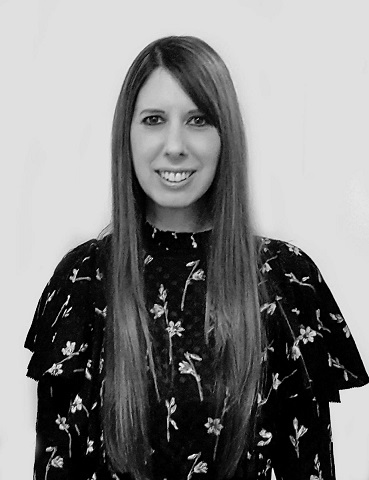Due to the pandemic, I was thinking about the big questions of life, and so my heroine became a philosopher and the film became about the meaning of life.
Patricia Leavy – 13 October 2023
The Back Flap
Controversial filmmaker Jean Mercier is shooting a film on location in Sweden. While spending the summer creating his latest work of cinematic art, he lives in a nearby inn with his lead actors: Albie Hughes, British veteran of stage and screen; Charlotte Reed, British indie film queen; Michael Hennesey, American TV heartthrob; Willow Barnes, fallen former teen star looking to make a comeback; and Finn Forrester, legendary Hollywood movie star. Mercier invites his friend Ella Sinclair—a beautiful, bohemian-spirited American philosopher known for her provocative writing—to stay with them for the summer. When Ella arrives, Finn is instantly enchanted by her, and soon they fall madly in love. Finn wants to plan a life together, but Ella harbors fears and convinces him to wait until the film wraps to decide their future. In a case of life imitating art, the film they are creating explores “the big questions” and prompts the stars to reflect on the crossroads they face in their own lives. How will their experiences on location affect them when they return home? The answers won’t come until months later, when the cast and crew reconvene on the red carpet at the Cannes Film Festival—but their revelation will make for one unforgettable night.
About the book
What is the book about?
An eccentric filmmaker is shooting a film in Sweden over the summer where he lives in an inn with the lead actors. Before arriving in Sweden, we get a glimpse into the lives of the actors in the cast—each at a personal crossroads. The filmmaker invites his friend Ella Sinclair, a beautiful, free-spirited, provocative philosopher to join them for the summer. Hollywood star Finn Forrester is instantly enchanted by her and the two fall madly in love, embarking on a sexy and romantic affair. Meanwhile, the film they’re all making is about the meaning of life. The subject of the film and the deep bonds the group builds over the summer push everyone to reflect on their own lives. When the shoot ends, each returns home, changed. The group reconvenes months later on the red carpet at the Cannes Film Festival and all questions are answered. In the simplest terms, The Location Shoot is a love story. At the core, it’s about living and loving with everything we have.
When did you start writing the book?
I wrote this during the lockdown. I wanted to escape to someplace joyful, romantic, and creative. Due to the pandemic, I was thinking about the big questions of life, and so my heroine became a philosopher and the film became about the meaning of life.
How long did it take you to write it?
I worked on it seven days a week and finished the first draft in about a month, maybe two. It’s been revised countless times since.
Where did you get the idea from?
I was watching a movie and Elton John’s song Goodbye Yellow Brick Road came on and all of a sudden, I was watching a scene play out in my mind—a group of people in an inn, having a drink, and a beautiful woman walks in, and dances with someone to that song. I could see it clear as day. I didn’t see anything in the movie on the screen after that, only the story playing out in my mind. The next morning, I began writing the novel. I started with that scene.
Were there any parts of the book where you struggled?
There’s something sad that happens in the book, and I struggled emotionally to write it. I was literally sobbing in front of my computer screen. In some ways it was cathartic since we were all going through so much trauma during the pandemic.
What came easily?
The love story between Finn and Ella. I loved writing their scenes and they just flowed out of me. The group scenes were also fun to write. Each character was so clear in my mind, and I had a ball during their dinner scenes.
Are your characters entirely fictitious or have you borrowed from real world people you know?
They are entirely fictitious. There are a few celebrities that came to mind as inspiration maybe for how a character looked or sounded, but that’s about it.
We all know how important it is for writers to read. Are there any particular authors that have influenced how you write and, if so, how have they influenced you?
So many. Carolyn Ellis and Laurel Richardson have taught me to be vulnerable and brave, and how to weave social commentary into creative writing. Meg Donahue has shown me how to write with compassion and give characters depth. Colleen Hoover reminds me to be honest about women’s experiences, including their fantasies. Candace Bushnell reminds me to always have fun with it, and balance the tender moments with humor, lightness, and a little irreverence. One of my favorite authors of all time, Simone de Beauvoir, taught me how to write philosophical fiction about women’s lives. She inspired me to write things that are fun to read, but that also explore important themes and questions.
Do you have a target reader?
Fans of romance and women’s fiction. Anyone who enjoys a Hollywood, celebrity kind of story. My ideal reader loves books about love—romantic, whimsical, aspirational love stories written for smart readers who like some witty banter and big ideas rolled into the silk sheets. Beyond that, any reader looking for a light, feel-good read with some food for thought.
About Writing
Do you have a writing process? If so can you please describe it?
I get an idea, which could come from anywhere, some personal experience, an observation, something I overhear at a café, a topic I’m interested in, a piece of art, whatever, and then I stew on it until it crystalizes in my mind. Once I can see an entire scene play out in my mind like a film, or sometimes an entire novel, I start writing, or in some cases doing research to enable me to write. While this is generally my process, the truth is, it never really happens exactly the same way twice which is why I’m still so in love with writing.
Do you outline? If so, do you do so extensively or just chapter headings and a couple of sentences?
I outline extensively for nonfiction. With fiction, I fly by the seat of my pants. When I have an idea that I feel is really there—at least par baked—I just start writing. I have written novels chronologically, but more often, I write scenes, out of order, and then stitch them together.
Do you edit as you go or wait until you’ve finished?
I edit as I go, usually dozens of times per chapter or even per scene. I solicit feedback chapter by chapter and edit more. Then when I have a full draft, I edit many more times before it goes to a copyeditor, which always leads to more revisions.
Do you listen to music while you write? If yes, what gets the fingers tapping?
I don’t, but I listen to music just about every waking moment when I’m not writing. I especially love women singer-songwriters. You can learn a lot about structure, using repetition purposefully, developing tone, building emotionality, writing with specificity but also with metaphor and symbolism, and writing from the perspectives of girls and women.
About Publishing
Did you submit your work to Agents?
I have, but decided it was not the right path for me. You never know what the future will hold, but these days I’m happy where I am.
What made you decide to go Indie, whether self-publishing or with an indie publisher? Was it a particular event or a gradual process?
I’ve worked with all different kinds of publishers over the years. I started my career with one of the biggest with a stellar reputation. Let’s just say, it didn’t live up to my fantasies. Since then, I’ve worked with all different kinds of publishers, including other biggies. My best experiences have consistently been with indie presses. It’s more personal, more humanizing. There’s more support for what’s always a bumpy journey. You feel like you’re in it together. I’m glad to be involved in all phases of the process, from production to promotion. I also like having more ownership over my work—after two decades and 40 plus books—that’s become vitally important to me as an artist. The funny thing is, over the course of my career, my most successful books have always been with indie presses. It’s so counter to what people assume.
Did you get your book cover professionally done or did you do it yourself?
It was professionally done. The designer came up with the concept. I absolutely love the result.
Do you have a marketing plan for the book or are you just winging it?
I was fortunate to be able to hire a terrific publicity team. I do also have my own marketing plan, which I do for all my books, regardless of the publisher and any outside help.
Any advice that you would like to give to other newbies considering becoming Indie authors?
Learn as much as you can about the process. Understand that you’ll need to wear two hats, as a writer and as an author working in the publishing industry. They’re not the same thing. Writers spend their days in story worlds. It’s very private. Authors negotiate, pitch themselves and their work, deal with critique, and more. It’s very public. Try to find ways to protect the creative side of yourself, while doing what you need to do to be an author. Have fun with it.
About You
Where did you grow up?
Outside of Boston.
Where do you live now?
Maine, not far from the sea.
What would you like readers to know about you?
I had an entirely different career. I wanted to be a writer since I was very little, but was too afraid to pursue it. Instead, I became a professor. Yet writing was my true passion. For years, I pursued it as a side hustle until I finally made the leap more than a decade ago. I’ve never looked back. I share this so that others will know, it’s never too late to follow your passions.
What are you working on now?
I loved writing Ella and Finn’s love story so much, that I didn’t want to leave it. My next novel, After the Red Carpet, comes out in September 2024. I’m also working on a series of romance novels that explores different dimensions of love.
End of Interview:
For more from Patricia Leavy visit her website and follow her on Facebook, Instagram, and Twitter.
Get your copy of The Location Shoot from Amazon US or Amazon UK.


